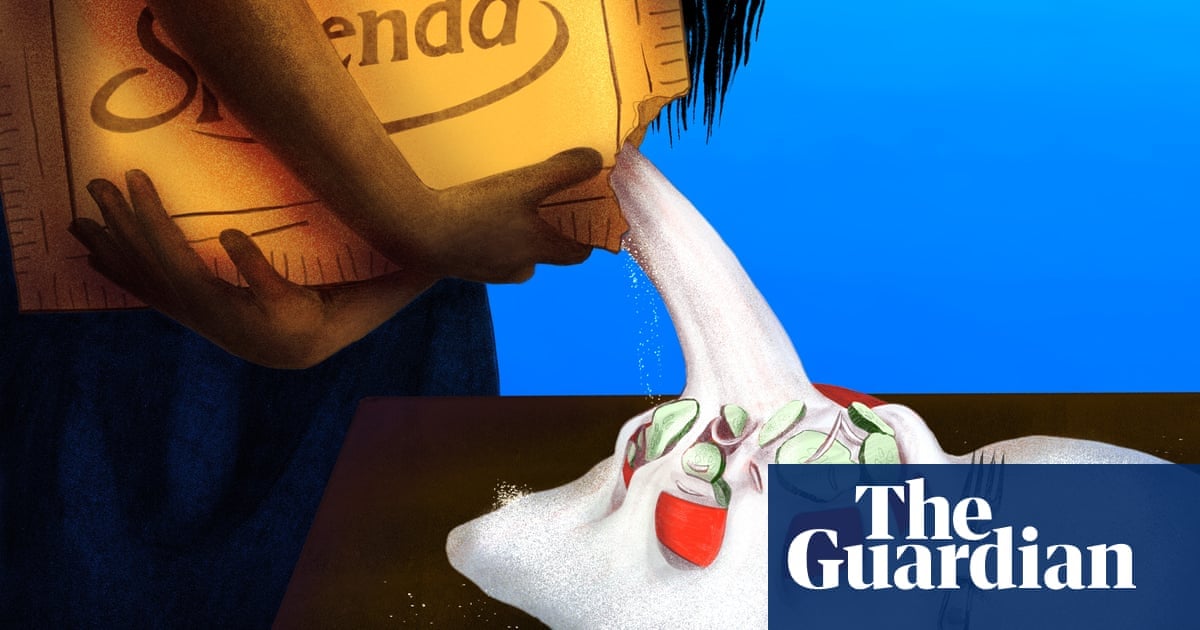Elizabeth Hanna says she was fired by the American Diabetes Association after refusing to approve recipes heaped with the additive made by a major donor
Elizabeth Hanna had a simple job: help people with diabetes figure out what to eat. Anyone with common sense knows this should probably not entail foods that might increase people’s risk of getting diabetes. But that’s not necessarily the thinking at the American Diabetes Association (ADA), the world’s leading diabetes research and patient advocacy group, which also receives millions of dollars from sponsors in the pharmaceutical, food and agricultural industries.
According to a lawsuit Hanna recently filed against the ADA, the organization – which endorses recipes and food plans on its website and on the websites of “partner” food brands – tried to get her to greenlight recipes that she believed flew in the face of the ADA’s mission. These included recipes like a “cucumber and onion salad” made with a third of a cup of Splenda granulated artificial sweetener, “autumnal sheet-pan veggies” with a quarter cup of Splenda monk fruit sweetener and a “cranberry almond spinach salad” with a quarter cup of Splenda monkfruit sweetener.
Guess which company gave more than $1m to the ADA in 2022? Splenda.



Splenda is a low calories sweetener, the only reason a small package can say Zero Calories is just because of archaic FDA rule that some ingredients don’t have to be listed below 5 Grams which works as a sort of loophole for very small servings to not list things. There are 96 Calories and 24 carbs per Cup of Splenda.
Maltodextrin, which is used in splenda, has calories. Sucralose doesn’t.
Isn’t the whole point, at least for aspertame and other sweetners- I don’t know about Splenda; that they have a much stronger flavor so you use nowhere near as much
No. Sweetness does not come from calories, it comes from the shape of the molecule as it touches the taste buds. Zero Calorie sweeteners do exist. Splenda is not one of them.
People who shy away from sweets more often have a biological issue with high caloric content, such as diabetes or otherwise chronic weight gain caused by a type of Thyroid disorder. Some people simply prefer to stay at their current weight and avoid the health complications that come with high calories.
Agreed.
That wasn’t my point. My point was that where you would use a cup of sugar you’d use less Splenda than that, because it is sweeter. It is also lower calorie. Those are two compounding effects.
I answered your question, that’s not the point of using low or zero calorie sweeteners because volume has absolutely no correlation to calories or sweetness. Using less or more cups is meaningless in a discussion of their nutritional value.
It was poor rhetorical phrasing meant to emphasize it’s much sweeter than sugar, yes I know the point is also that they’re low calorie.
Well that’s not entirely true, extremely high doses of aspartame at least in rats was associated with cancer.
Yes, don’t drink the equivalent of 500 Sugar Free Gatorades a day. Goes without saying.
Not according to journalists reading that study or the WHO